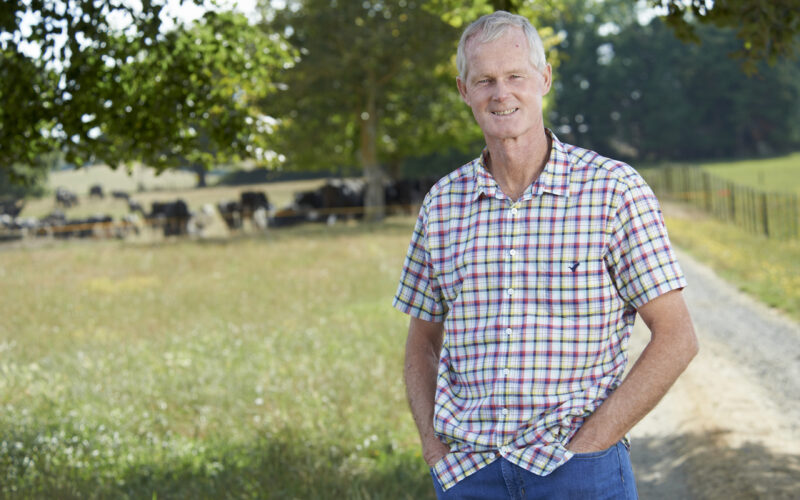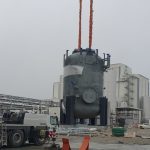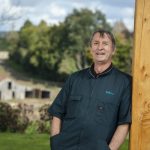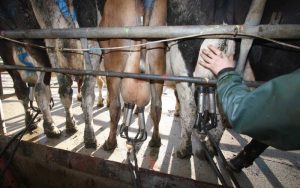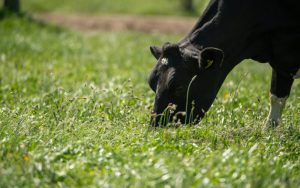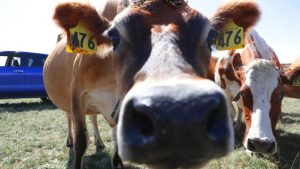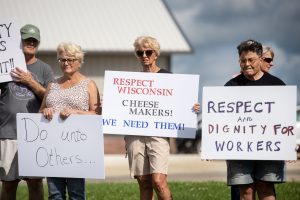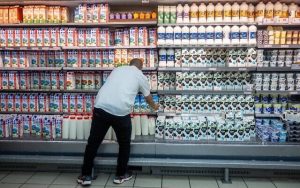
For perhaps the first time in 25 years, Jim van der Poel is free from a governance role in the dairy industry.
The former DairyNZ chair stepped down from the organisation’s board at its annual meeting on October 22, saying the time was right, with both the board and senior management in a good space.
It had been signalled well in advance that he would be stepping down, with Tracey Brown to replace him. Around the board, this had also been discussed with a plan put in place to make the transition as smooth as possible.
Van der Poel had been chair of DairyNZ since 2017, following his election to the board in 2013.
He served as a farmer-elected director on the inaugural board in 2007-2009, then again from 2013.
Prior to this, he was appointed to the foundation board of DairyNZ’s predecessor Dexel in 2000, becoming chair in 2003. He also sat on Fonterra’s board from 2002-2014 and NZ Dairy Group prior to Fonterra’s creation.
His time at these board tables coincided with the expansion of the dairy industry throughout the country and the resulting challenges and policy issues that impacted the dairy industry, along with threats such as Mycoplasma bovis.
Van der Poel told Farmers Weekly he was always guided by what he felt was the right course of action at the time.
“You have to keep on doing what you think is right on the day,” he said.
“For 25 years, farmers have always voted when I have put myself forward for these roles, so that’s very humbling, the fact that I’ve had the confidence of farmers for 25 years. I’m very appreciative of that.”
That longevity he believes is a result of doing the right thing and being able to articulate that position to farmers.
“There will be a lot of farmers who don’t necessarily agree with you, but they do respect you if you do it for the right reasons.”
He said he is often asked by farmers whether, with hindsight, he would have done things differently.
“I don’t look at it that way. When you’re in the moment, what’s the right thing to do here? You gather the information, talk to people around you and make a decision.”
You change tack if things then change, he said.
The decision to eradicate M bovis was an example of this. It was a huge call at the time with many – including the Ministry for Primary Industries’ Technical Advisory Group – doubting it was possible because it was a $1 billion process.
“It was a big call to make on very average information at the time because it had never been done and the technical experts couldn’t agree if it was even possible to do. We made the call and, touch wood, it seems to be working out.”
On He Waka Eke Noa (HWEN), it was believed that Labour would have at least another term in government either as a majority or possibly in partnership with the Green Party, which would take them past January 2025 when agriculture’s entry into the Emissions Trading Scheme was due to come into effect.
Van der Poel said this was why he and other sector group leaders tried to work with the government to find an alternative.
“Circumstances have changed and I’m happy where we have ended up but at the time, that was the framework we were working with.”
The new government has given the primary sector more time to work through things, shifting the date for agriculture’s inclusion into the ETS to 2030 at the latest.
He doesn’t consider HWEN a failure, believing that it did what it believed was the right thing to do at the time. Some of that work will also be used for what is to come over the next five years.
“The commitments to Paris [climate change accord] haven’t gone away, it’s just that the new government has given the industry an extra five years to work out what’s that going to look like.”
He said the most important thing when approaching these issues is relationship building, regardless of who is in government. This helps create an enduring solution that is fair and practical to prevent it being litigated.
“Relationships are built in peacetime and you have to build relationships with people when there’s not real issues on the table so then you can have good conversations and work constructively together to find the right answers and move forward.”
DairyNZ’s role has evolved over the years, with it taking a much larger role in the advocacy space as policy issues became increasingly important.
Van der Poel said DairyNZ always tries to respond to these issues from a science and information perspective and it often means working in partnership with government organisations. It also allows DairyNZ to differentiate itself from Federated Farmers.
This played out in the M bovis response, where DairyNZ and Federated Farmers’ roles complemented each other, he said.
“We were actively working with them and had some pretty robust conversations behind closed doors about what was working and what wasn’t – but we never had a go at them in the public arena and Feds could – they could bring in live examples of where farmers were being impacted by poor performance and things like that.”
Looking ahead, he said the dairy industry will have to front up to key environmental issues such as methane reduction and water quality.
“If we can get on top of those and find GHG mitigations, we’re potentially positioning the industry so it can have a good discussion around the future: is there an opportunity to grow and is there an opportunity to think about what that looks like going forward?”
For Van der Poel, it’s a chance to sit back, take some time out and spend more time with wife Sue.
“We’ll do a bit of travelling where we don’t have to fit it around board meetings and other things.”
You can now read the most important #news on #eDairyNews #Whatsapp channels!!!
🇺🇸 eDairy News INGLÊS: https://whatsapp.com/channel/0029VaKsjzGDTkJyIN6hcP1K
